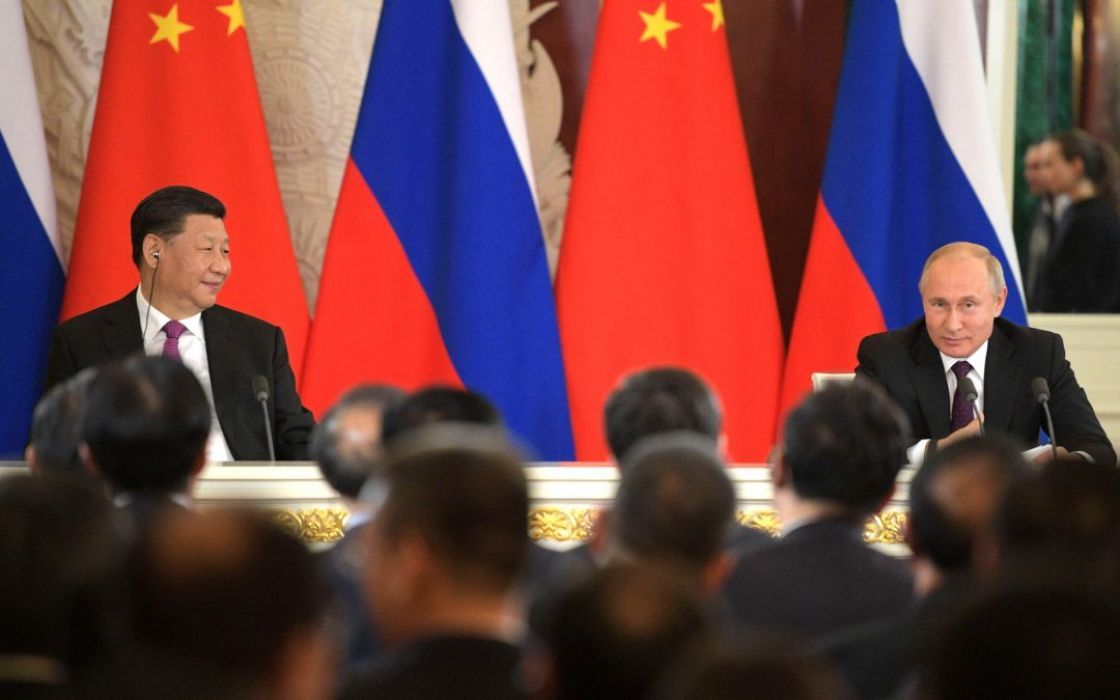- Articles
- Posted
Regarding the Chinese-Russian “Contradiction” in Syria
Since the Chinese Foreign Minister’s visit to Syria on the 17th of this month until this moment, the torrent of bizarre “political analyses” has not stopped, punctuated by a lot of innuendos, insinuations, and clever allusions, most of which add to a set of basic matters, which can be summarized as follows:
First: The false claim that the four-point Chinese proposal drops UNSC Resolution 2254 from the agenda, which was refuted by Kassioun in another piece in this issue based on the Chinese Foreign Minister’s statements on the 17th and 22nd of this month.
Second: Extracting the Chinese talk about “abandoning the illusion of regime change” from its context, which clearly indicates that what is meant is the illusion of an externally-effectuated regime change. The literal translation of what the Chinese minister said within the first item of his proposal is the following: “Respecting the Syrian people’s choice and abandoning the illusion of regime change, and letting the Syrian people independently determine the future and fate of their country.”
Third: Building on the previous lie and taking of only part of the statement to say that there is a contradiction and competition between China and Russia over the Syrian situation. Furthermore, the delirium of some fantasists has reached the point of talking about new areas for maneuvering created by the supposed contradiction between China and Russia.
“Balancing the Russian role”
Among the dozens of articles and press and media reports woven in this vein, we can find many examples, including a lengthy report published by US-based al-Hurra channel on the 20th of this month, entitled: “The Chinese role in Syria … ‘messages’ to America and support for Assad in exchange for possession” (in Arabic).
In addition to repeating the lies we mentioned above, the aforementioned report uses statements made exclusively to al-Hurra by the former US Deputy Assistant Secretary of State for East Asian and Pacific Affairs, Peter Brooks.
From the report, under the subheading “Balancing the Russian Role”, we quote the following:
“Brooks believes that Syria, which ‘does not have many friends’, is very interested in obtaining a strong economic and military ally alongside Russia, to ‘balance the Russian role’ in the country, and is also looking for economic aid and assistance in dealing with the Coronavirus, and for assistance in the reconstruction file.
Despite this, ‘China has not done much so far’, says Brooks, adding that ‘Russia will be interested in monitoring the emerging relationship with China’ in Syria for the next stages.”
One can say that Brooks’s words above are the pivot around which the entire report revolves. It is not difficult to conclude that extremists from all sides are entertaining illusions of the type of “Chinese-Russian contradiction” in Syria. Those who have tried for many years to play on regional and international contradictions, and with the prospects of Russian-American consensus, are in urgent need of new maneuvering margins that they dream a supposed contradiction between China and Russia would create.
The Belt, the Road, and “the Qatar gas pipeline”?
The various reports these days are based on the Belt and Road and Syria’s relationship therewith. This in itself is a good thing because the essence of the issue that is related to Syria’s location and the importance of that location has begun to take its natural and objective context, even if it is within falsification attempts such as the ones we covered previously, and through fabricating a contradiction between two organically complementary projects, that is the Belt and Road on the one hand, and the Eurasian project on the other. They are China and Russia’s strategic projects.
Although the context does not allow for an extensive discussion of the lie of the Qatari gas pipeline, which has magically become the reason behind everything that has happened in Syria, it may be useful to provide a preliminary indication on the subject here.
Many may not know that Qatar was unable to extend a gas pipeline between it and Kuwait because of Saudi Arabia’s opposition to that line passing no more than 80 km in its territorial waters. Despite this obvious fact, there are some who assumed that a project to extend the Qatari gas pipeline thousands of kilometers to reach the Mediterranean through Syria is a feasible project or a serious one.
The issue, we believe, is essentially a coverup of the centrality of the Belt and Road project and its importance in what happened in Syria over the past few years. Certainly, this is not the only reason, but from a major international strategic projects perspective it is a main reason, and not an alleged gas pipeline the existence of which has no hope and no basis.



 Salma Abdullah
Salma Abdullah